Grayson Perry
In 1992 I created a graphic novel called Cycle of Violence. Reading it now, the initially striking thing is that it predicts the rise of cycling culture in the UK and a working-class boy called Bradley winning the Tour de France. But it mainly reflected the state of my mind at the time — it contained a lot of perverted sex, dysfunctional parenting and mercilessly mocked the process of psychotherapy.
In 1992 our daughter Flo had just been born and my wife Philippa seemed to have read every parenting book under the sun. Our house was full of the jargon and ideas associated with psychotherapy. Words and phrases like ‘transference’, ‘-projection’, ‘anger issues’ and ‘persecutor/victim’ became commonplace, usually (justifiably) describing my behaviour. I think I channelled my irritation about this into Cycle of Violence.
In the following years Philippa began training to become a therapist and my aversion to psychotherapy matured. It all felt terribly earnest, verging on the hippy/spiritual, a particular bugbear of mine.
There is a theory that a parent, when their child reaches an age when the parent themselves went through particularly traumatic childhood events, can experience long buried feelings. When my daughter reached five or so, I think this happened to me.
My wife said she had found me a lovely therapist. I was an angry mess, so I went.
My conversion was instant and profound. Like many new to therapy, I became evangelical. I went regularly for six years and when I finished I told my therapist, Rex, that it was the best money I ever spent. I still feel that. Over the two decades since, more than anything, psychotherapy has profoundly influenced my work as an artist and a broadcaster.
Of course psychotherapy has a word for ‘fear of being influenced by other people’, coined by R.D. Laing. It is diaphobia — the opposite of dialogue.
Boris Johnson
What I’ve really changed my mind on was whether it is possible to reset with Russia. I really thought, as I think many foreign secretaries and prime ministers have thought before, that we could start again with Russia. That it’s a great country we fought with against fascism. It was very, very disappointing that I was wrong.
Richard Dawkins
No doubt I’ve been wrong in my personal life and my political opinions but who cares about that? I care about science and will talk about an occasion where I was wrong in science.
The biologist Amotz Zahavi proposed the ‘handicap principle’ to explain just about every aspect of the evolution of animal signals. It is most starkly expressed with the example of a sexual display, such as the peacock’s ‘tail’. Darwin recognised that such an extravagant ornament did not serve the animal’s survival. Far from it. But females prefer to mate with males sporting huge and magnificent tails. So genes (Darwin didn’t talk in terms of genes) for being extravagantly beautiful get passed on to the next generation, and that’s why peacocks (like male birds of paradise, gaudy fish, etc.) look as they do. Sexual selection, Darwin called it.
Nobody doubts that peacock tails (etc.) are a handicap to their owners. They are costly to grow, and they attract predators just as they attract females. We all thought (me included) that they evolved that way in spite of being handicaps. Zahavi’s revolutionary idea was that they evolved that way precisely because they are handicaps. In the cute terms beloved of Zahavi: ‘Look at me, I’ve managed to survive in spite of carrying around this ridiculous burden of a tail, you’d better mate with me because I obviously have superb genes.’ Less anthropomorphically, advertisements have to be honestly costly or they carry no weight.
In the first edition of The Selfish Gene I ridiculed Zahavi’s idea. I was wrong. I had to eat my words, for reasons spelled out in the second edition.
Tony Abbott
A rather important issue — this question of multiculturalism. Thirty years ago, I was anxious about the impact on Australia of people from very diverse cultures. But then when I was running the group Australians for Constitutional Monarchy, I found to my surprise, and ultimately great satisfaction, that there were many, many people, of very diverse cultural backgrounds, who supported the monarchy in Australia very strongly. It was one of the reasons why they’d come to Australia: the stability, the continuity, the settled government that the monarchy in our country symbolises. And that led me to an even stronger conclusion: that the vast majority of migrants are coming here to join us, not to change us.
David Cameron
Well, the gay marriage thing was something I changed my mind on. I was a slow learner on these things: that’s been my biggest change of heart. But on a lighter note, I’ve changed my mind about running. I once got hypnotised to give up smoking — two days later I suddenly decided to go for a run… and I’d never been on a run in my life. The hypnotist must have done something because, ever since, I’ve loved going for runs. That was a very interesting change. But I need to go back for a bit more hypnosis.
Hilary Mantel
I used to think ‘faith’ was a set of beliefs, one I hadn’t got and didn’t know how to acquire. Then I thought, what if it’s more like hope — as when you say ‘I have faith my broken leg/heart will mend’? Having revised my view, I was able to fall in with Theodore Parker and Martin Luther King: ‘The arc of the moral universe is long, but it bends towards justice.’
Joanna Lumley
As soon as I read all 12 books of A Dance to the Music of Time by Anthony Powell, I fell under the spell of his writing. Like repainting the Forth Bridge, no sooner had I finished book 12 than I would start again at the beginning. I became an addict.
To my horror, people started saying that the books lose their charm eventually, begin to pall. I thought with a sick fear that I may have changed into such a person, and laid them aside, hardly daring to think they might be right. A year went by — and then recently I furtively opened At Lady Molly’s and the thrilling drug-rush of that alternative world, whose characters are now as familiar as my own family, speared back into my brain. I was wrong; they were wrong. Powell is matchless.
Cass Sunstein
In 2016, I wrote an academic article called ‘The Most Knowledgeable Branch’. The article was a love letter to the executive branch, headed by the President of the United States. I argued that the executive branch, with its excellent civil servants, has much more information than Congress and the courts — which means (I thought) that in both domestic policy and foreign affairs, it should be given a lot of room to manoeuvre. I liked that idea so much that I signed a contract to write a whole book in its defence.
Oops. A few months after the election of Donald Trump, it became clear that even if civil servants are excellent and knowledgeable, the political whims of the President can create chaos and disaster. Civil servants might know that climate change poses serious risks, that new regulations would save lives on the highways, or that it doesn’t make a lot of sense to ask people about their citizenship on the United States census. But if the President is prepared to overrule its judgments, the most knowledgeable branch might be the most dangerous branch — and needs to be constrained. I abandoned the book (and returned the modest advance).
Jessie Burton
Earlier this year, I decided to buy a puppy. It was a cheery thing to look forward to, a distraction from a difficult present. I had wanted a rescue dog, but very few of them were compatible with cats — and my cat, Margot, is not predisposed to… anyone. So I paid a deposit to a breeder, ignoring as best I could the uncomfortable eugenic overtones; how I could pick its sex and colour, and would receive updates on the forthcoming litter through a ‘puppy portal’. As the arrival date loomed, I baulked. I wasn’t ready, I was not a dog person! I asked for my money back and closed the magic portal. Possibly I never believed I would get that puppy. I just needed its sweetness, its symbol of hope — and in the end, I rescued another cat. The shelter named him Rafael. He is indeed an angel: no changing my mind on that.
Alexandra Shulman
I’ve changed my mind on flat shoes. I wouldn’t have been seen dead in them before and I always thought high heels were more comfortable. But now I really like plodding around in flat shoes. It was a pair of nice gold loafers that made me change my opinion. They’re quite glitzy but they are flat.
Debbie Harry
Fear. And understanding fear.
Michael Gove
I change my mind and I sometimes change it back! Funnily enough, I changed my mind about coalition with the Liberal Democrats when it happened, in that it ended up being a better government than I would have imagined beforehand. If you’d said to me in 2008 or 2009, ‘Do you think this would be a good idea?’, I would have said no, I think it is probably going to be a dreadful idea. But in the end, for a variety of reasons, that worked out. I still think it was a good government. I prefer majority governments, though, I have to say.
Rachel Riley
I have in the past received thousands of abusive social media messages at a time. I used to feel that not responding to trolls or blocking them was weak, so I would call them out and try to engage in a reasoned debate. The ‘Don’t Feed the Trolls’ guide from the Center for Countering Digital Hate totally changed the way I interact on social media. It showed me, using evidence, why engaging with posts by those who use identity–based hate — against women, LGBT people and racial or religious minorities — is the wrong approach. Racist, sexist and homophobic trolls are looking for a reaction, because it rebroadcasts their posts to my followers and indicates to social media algorithms that this is something that might be interesting to a wider audience — the opposite effect to what I would want. I now block trolls as standard practice, and I’ve changed my settings so I don’t see as much of their bile. It’s helped my own mental health and I feel better for not inadvertently helping to grow haters’ audiences or feed their ideas.
Maggi Hambling
My childhood abhorrence of a well-known brand of sandwich spread remains as strong as ever. A reassuring and comforting ‘no change’ situation. By contrast, as a passionate lover of tennis, both watching and playing, I had an unnerving change of heart at Wimbledon this year. I had always had difficulty appreciating the great champion Serena Williams. When she and Venus burst on the scene, their religious fervour appeared to dominate every interview. And Serena’s overpowering and unquestionable physical force seemed to me to be her only asset.
How wrong I was. When I encountered Serena in the flesh for the first time, her dignity, grace, delicacy, sportsmanship, good humour and whole presence on the court utterly disarmed me. It was a revelation and I saw how wrong I’d been for a very long time.
Peter Singer
In 1971, in the midst of a refugee crisis associated with the struggle for the independence of what is now Bangladesh, I wrote ‘Famine, affluence and morality’, an article arguing that it is wrong for people living in affluent countries to spend money on luxuries when people elsewhere are dying from lack of food, shelter, or safe drinking water. I set a very demanding standard: ‘we ought to give until we reach … the level at which, by giving more, I would cause as much suffering to myself or my dependants as I would relieve by my gift.’ That standard can require reducing oneself to somewhere near the material circumstances of the people one is helping.
I can still see the power of that argument, but I have changed my mind about the usefulness of advocating a standard as demanding as that. Few people manage to live up to it — I don’t myself. So in The Life You Can Save, I suggest a more moderate standard, starting at 1 per cent of one’s income and rising to 50 per cent for people earning more than US$53 million. This more modest standard does not impose serious hardship on anyone. Yet, if widely adopted and directed towards a charity like Give-Directly, which is piloting universal basic income schemes in Africa, it would provide funds sufficient to raise most of the estimated 734 million people living in extreme poverty to the point where they have sufficient income to meet their families’ basic needs.
Got something to add? Join the discussion and comment below.
Get 10 issues for just $10
Subscribe to The Spectator Australia today for the next 10 magazine issues, plus full online access, for just $10.
You might disagree with half of it, but you’ll enjoy reading all of it. Try your first month for free, then just $2 a week for the remainder of your first year.

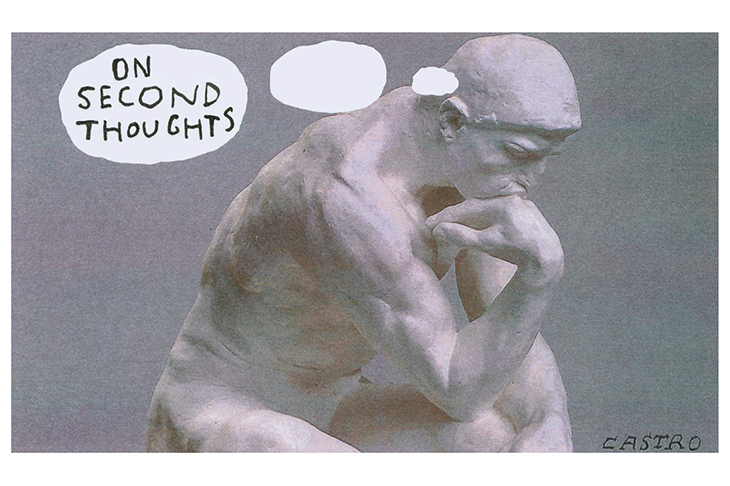
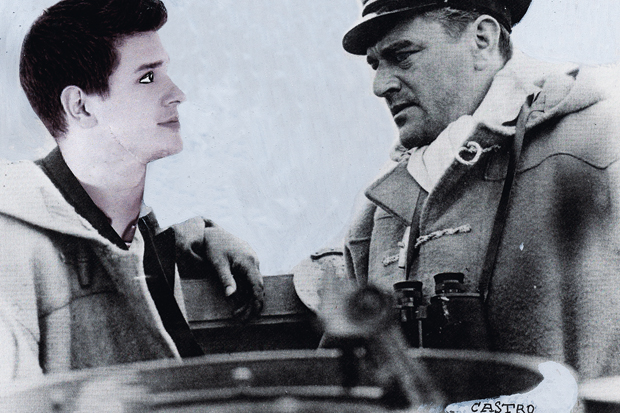
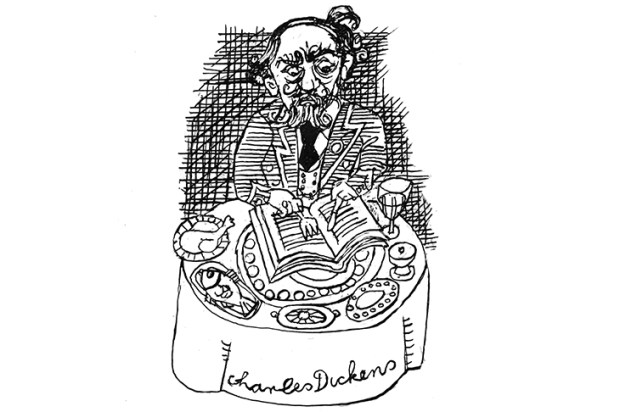

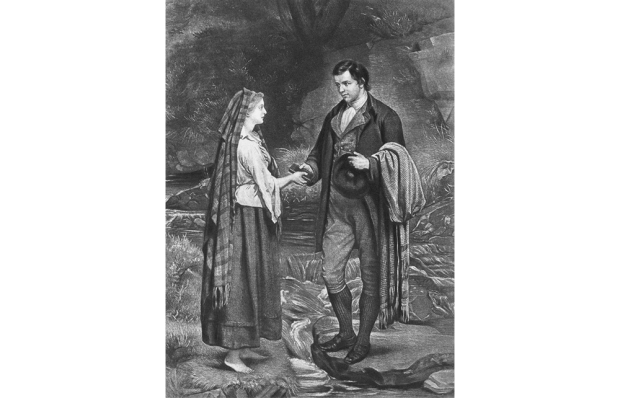

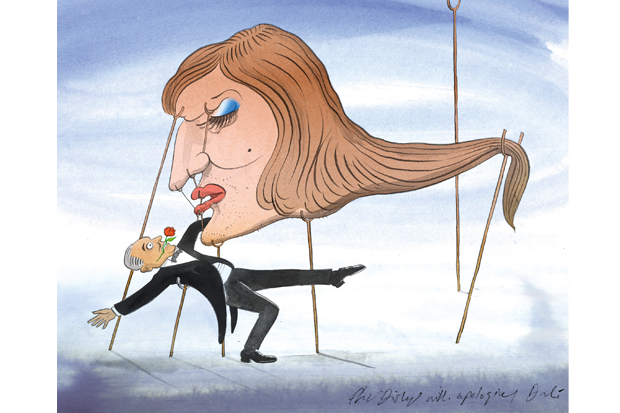






Comments
Don't miss out
Join the conversation with other Spectator Australia readers. Subscribe to leave a comment.
SUBSCRIBEAlready a subscriber? Log in